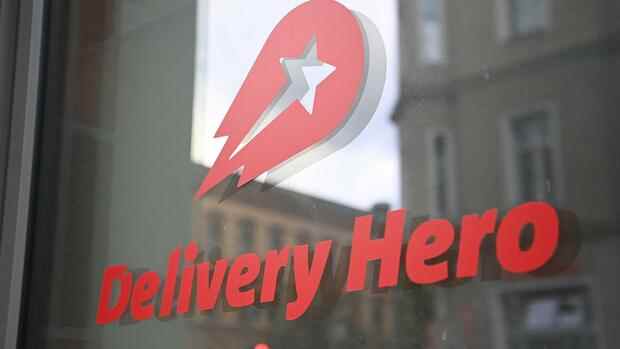Dusseldorf The Dax group Delivery Hero has announced that it intends to break through the profitability threshold for the first time since it was founded. In the second half of 2022, the delivery service expects at least the adjusted operating profit (Ebitda) with food deliveries to break even.
According to new forecasts, the adjusted Ebitda in the fourth quarter could be up to 100 million euros. In the long term, Ebitda should account for 5 to 8 percent of total platform sales. However, the company does not say by when this should be achieved.
A jump into the profit zone would be an important milestone for Delivery Hero, as the company is the only Dax group that has never posted a profit. But there are still doubts as to whether this path is sustainable.
After the announcement, the share price initially jumped by more than seven percent and peaked above 88 euros, but then fell again slightly. But the next few weeks will have to show whether this is a turning point and whether investors will have long-term confidence in the paper.
Top jobs of the day
Find the best jobs now and
be notified by email.
The Delivery Hero share has been falling steadily for months and has fallen by 28 percent in the last six months. The share reached its high at the beginning of 2021 at 140 euros.
The stock market’s skepticism is not entirely unfounded. Because it is not the first time that Delivery Hero has announced that it will be profitable. As early as 2018, Östberg had promised to be profitable by the end of the year. But he had to cash in on this profit target, which apparently cost him quite a bit of credibility.
We are on a solid path to making our food delivery business profitable in the second half of this year. Delivery Hero CFO Emmanuel Thomassin
At that time, he justified the withdrawal of the profit target by saying that the market conditions were perfect for investing in growth. And even now Delivery Hero is operating in a market that is characterized by extreme growth. Investors around the world are investing billions in building delivery services.
However, in management’s view, the situation is now different because the company has already reached a critical size. “Delivery Hero has always invested in growth because we had the clear goal of achieving the necessary size to achieve profitability,” emphasizes Chief Financial Officer Emmanuel Thomassin.
The takeover of Glovo should offer new opportunities
It is now showing that the investment strategy has proven to be successful. “We are on a solid path to make our food delivery business profitable in the second half of this year,” said Thomassin.
Delivery Hero’s chief financial officer is optimistic.
(Photo: PR)
The majority takeover of the Spanish delivery service Glovo should also contribute to this. Delivery Hero signed an agreement in December to increase its stake in Glovo from 44 to almost 84 percent. The company is having this transaction cost almost 800 million euros. The previous owners should not be paid in cash but in Delivery Hero shares.
With Glovo, Delivery Hero will be able to fully consolidate a business that is growing rapidly. In the past year, Glovo’s sales increased by 80 percent to 800 million euros. The Spanish company is not yet profitable either. However, Delivery Hero’s management is convinced that closer cooperation between the two companies will bring further economies of scale and synergies.
What speaks for Glovo: Unlike Delivery Hero, who have withdrawn from business in their home market, Glovo is number one in its home market of Spain. And according to their own statements, they are also on the verge of becoming profitable there. Around 70 of the sales that Glovo processes via its platform come from countries in which the company is number one in the market.
In addition, Glovo and Delivery Hero’s business does not overlap. While the German company is strong in Asia, South America and Northern Europe, the Spaniards have their focus on Southern and Southeastern Europe and North Africa.
Investments slow down the path to a group profit
This is no coincidence, but apparently well prepared: The two companies had already sold parts of their business to each other in the past in order to streamline their portfolios. In 2020, for example, Delivery Hero had already bought Glovo’s business in nine South American countries for around 230 million euros.
But what makes Glovo particularly interesting: They not only deliver food from restaurants, but have developed into a fast delivery service that delivers all kinds of goods, partly from partner retailers such as Douglas, Aldi, Dia or Biedronka, partly from their own warehouses.
Delivery Hero is currently investing in this so-called quick commerce and sees it as an attractive growth area. For this reason alone, the group has restricted that the profitability threshold is only likely to be reached this year for food deliveries. It will take significantly longer until the bottom line is in the black.
Because there is still a long way to go. Because precisely because of the high investments in the expansion of the business with deliveries of supermarket items, the company is currently in the deep red. In 2020 alone, the bottom line for the entire group was a deficit of 1.4 billion euros. A high loss is likely to have been incurred in 2021 as well.
But here, too, the company gives investors hope that losses will be limited. It announced that investments in quick commerce should peak in the first quarter of 2022. Then they should decrease gradually.
More: Contrary to all announcements, the Dax group is withdrawing from Germany after only a few months. The emergency brake could also have advantages.
